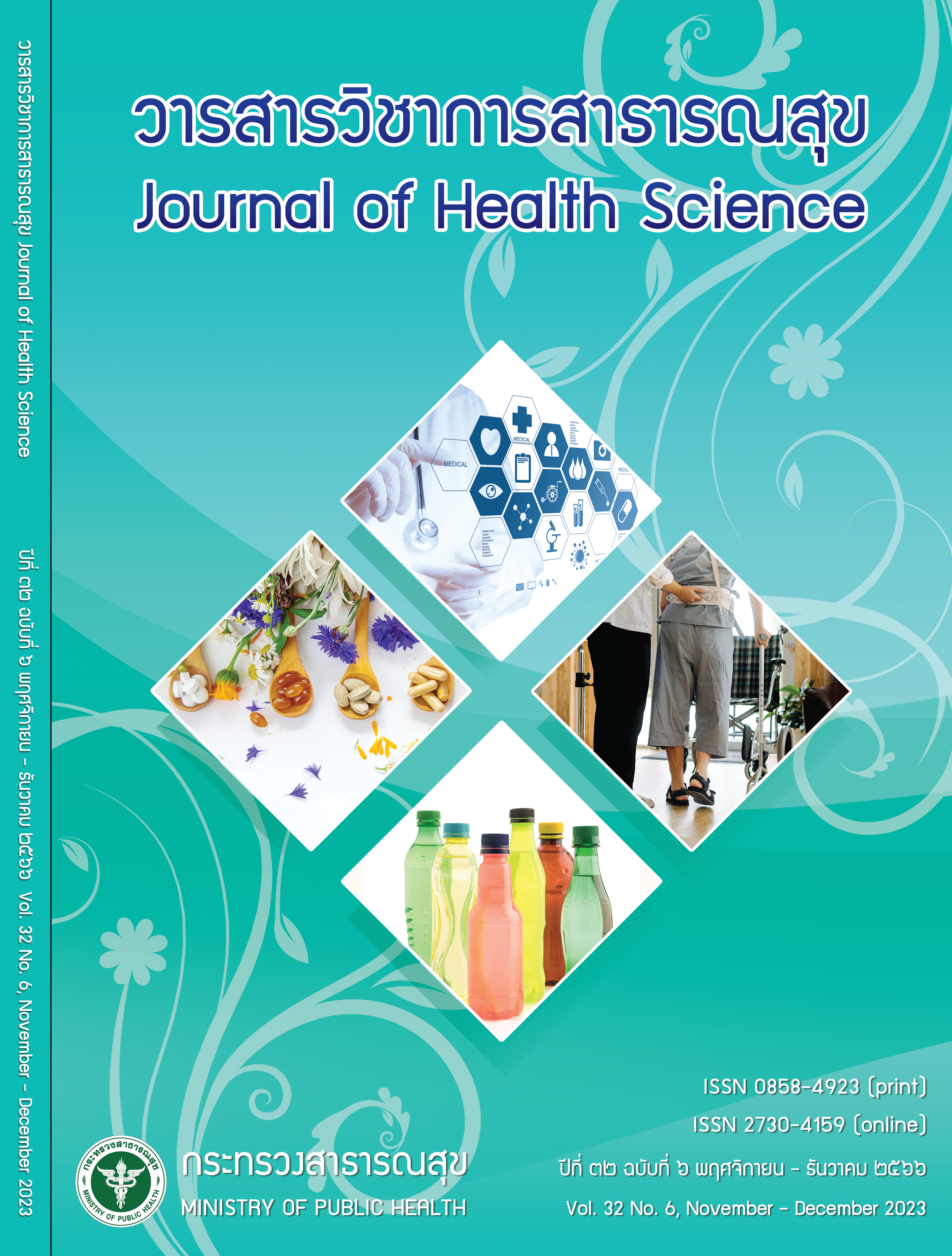Performance Evaluation of Eliminate problems of Opisthorchiasis and Cholangiocarcinoma Project in Thailand - Phase 1 (2016-2018)
Keywords:
opisthorchiasis, Opisthorchis viverrini, cholangiocarcinomaAbstract
The objective of this study was to evaluate the national program for liver fluke control phase 1 (2016 - 2018) in order to obtain useful information to maximize the efficiency of the operation in the remaining phases. It was conducted by applying the CIPP model evaluation model by analyzing 4 aspects of the model, namely context, inputs, process, and products. The study areas were 19 high prevalence provinces of the country mainly in the north and northeast regions. The methodology included document review, in-depth interviews using a questionnaires, environmental survey, and brainstorming meetings of officials responsible for opisthorchiasis program of the Department of Disease Control and the provincial public health in the risk areas. As for the results, it was found that there had been concrete evidences of prevention and control efforts for the risk population with clear targets of screening and treatment services. The inputs were financial resources and skilled personnel from Ministry of Public Health and other related agencies. However, there was still a lack of experts and budget to meet the need of the some locations. For the process, there was active participation of networks, community leaders, local people, schools, and local administrative organizations. The subjects of opisthorchiasis and cholangiocarcinoma were included in school curriculum in the affected areas. Nevertheless, there was still clear weakness on the participation of local communities. Regarding the products and outcomes, information was obtained from 2,952 samples aged 15 and above of whom 61.8% were female, mostly with primary school education level and were farmers. They were still frequently practiing behaviors of consuming food at risk of liver fluke infestation such as raw fish and fermented fish; and 19.02% of them never thought of discontinuing the consumption. Some of them did not pay attention on the screening as they felt that they could personally be able to buy antiparasitic drugs. Problems of the limited provincial support for program implementation had resulted in some constraints for field operation. Therefore, such information collected from the phase 1 evaluation should be properly utilyzed in order to improve effectiveness and efficiancy of the operation in next phase to ensure the good service availability that could improve the quality of life of the Thai people.
Downloads
References
แม้นสรวง วุฒิอุดมเลิศ. พยาธิใบไม้และปัจจัยเสี่ยงมะเร็งตับ [อินเทอร์เน็ต]. [สืบค้นเมื่อ 10 เมษายน 2563]. แหล่งข้อมูล: https://www.pharmacy.mahidol.ac.th/knowledge/files/0205.pdf
กระทรวงสาธารณสุข. แผนยุทธศาสตร์ทศวรรษกำจัดปัญหาพยาธิใบไม้ตับและมะเร็งท่อน้ำดี ปี 2559-2568. กรุงเทพมหานคร: องค์การสงเคราะห์ทหารผ่านศึก; 2559.
World Health Organization. Noncommunicable diseases country profiles 2018. Geneva: World Health Organization; 2018.
Auerkari EI, Joewono V, Handjari DR, Sarwono AT, Suhartono AW, Eto K, et al. Expression of p27Kip1 and E-cadherin in head and neck squamous cell carcinoma of Indonesian patients. Open Dent J 2014;8:136-43.
Imsamran W, Pattatang A, Supattagorn P, Chaiwiriyabunya A, Namthaisong K, Wongsena M, et al. Cancer in Thailand vol. IX, 2013-2015. Bangkok: National Cancer Institute; 2018.
สำนักงานคณะกรรมการสุขภาพแห่งชาติ. มติสมัชชาสุขภาพ แห่งชาติ ครั้งที่ 7 พ.ศ. 2557: การกำจัดปัญหาพยาธิใบไม้ตับและมะเร็งท่อน้ำดีในประชาชน. นนทบุรี: สำนักงานคณะ กรรมการสุขภาพแห่งชาติ; 2557.
Stufflebleam DL, Coryn LS. Evaluation theory, model & application. 2nd ed. SanFrancisco: Jossey-Bass; 2014.
Dao HTT, Dermauw V, Gabriel S, Suwannatrai A, Tesana S, Nguyen GTT, et al. Opisthorchis viverrini infection in the snail and fish intermediate hosts in Central Vietnam. Acta Trop 2017;170:120-5
Burli C, Harbrecht H, Odermatt P, Sayasone S, Chitnis N. Mathematical analysis of the transmission dynamics of the liver fluke, Opisthorchis viverrini. J Theor Biol 2018;439:181-94.
Kaewpitoon SJ, Rujirakul R, Loyd RA, Panpimanmas S, Matrakool L, Tongtawee T, et al. Re-examination of Opisthorchis viverrini in Nakhon Ratchasima Province, Northeastern Thailand, indicates continued needs for health Intervention. Asian Pac J Cancer Prev 2016; 17(1):231-4.
Aung WPP, Htoon TT, Tin HH, Thinn KK, Sanpool O, Jongthawin J, et al. First report and molecular identification of Opisthorchis viverrini infection in human communities from Lower Myanmar. PLoS One 2017; 12(5):e0177130.
Clauser SB, Wagner EH, Aiello Bowles EJ, Tuzzio L, Greene SM. Improving modern cancer care through information technology. Am J Prev Med 2011;40(5 Suppl 2):S198-207.
Prakobwong S, Suwannatrai A, Sancomerang A, Chaipibool S, Siriwechtumrong N. A large scale study of the epidemiology and risk factors for the carcinogenic liver fluke Opisthorchis viverrini in Udon Thani Province, Thailand. Asian Pac J Cancer Prev 2017;18(10):2853- 60.
Downloads
Published
How to Cite
Issue
Section
License

This work is licensed under a Creative Commons Attribution-NonCommercial-NoDerivatives 4.0 International License.







